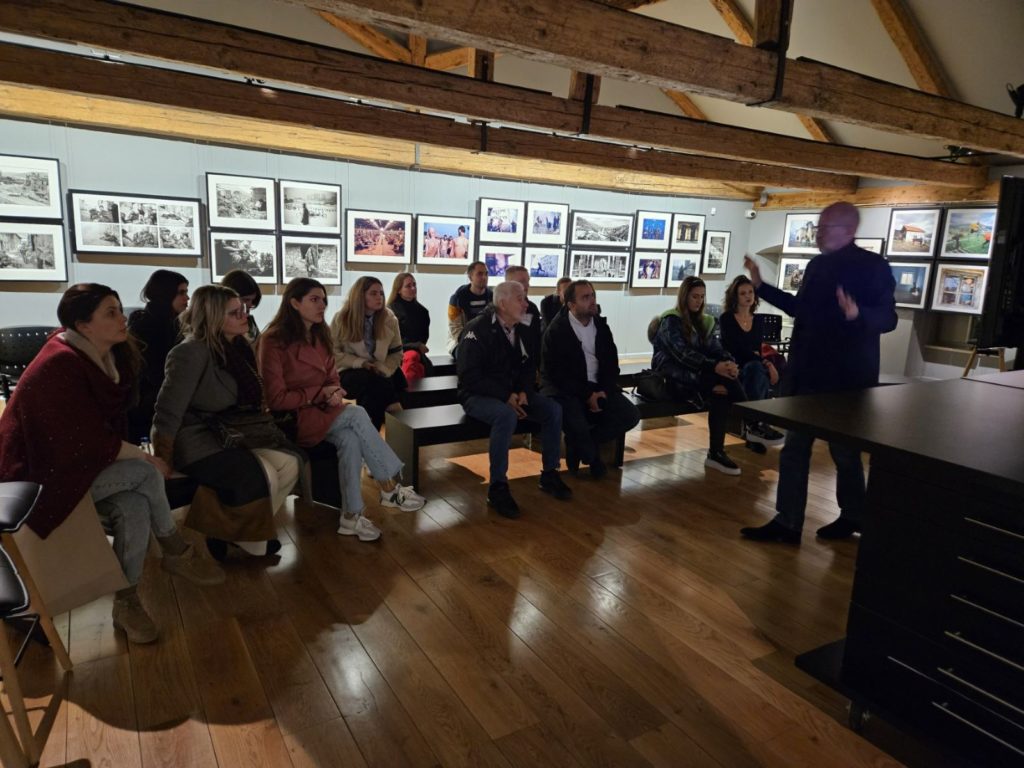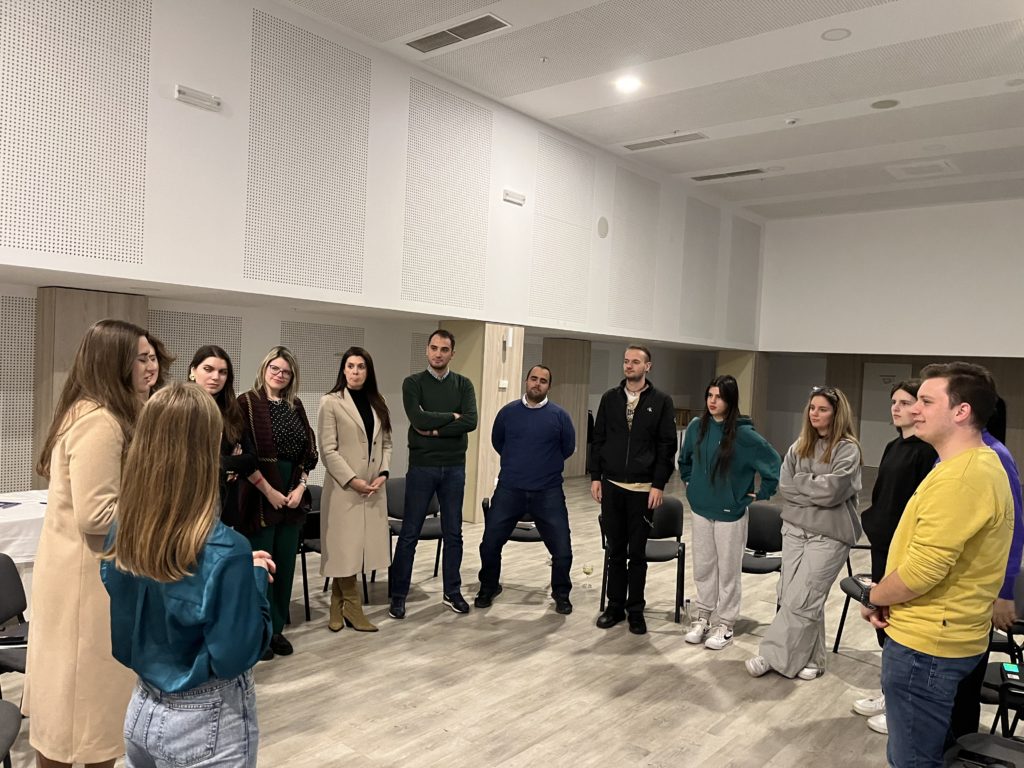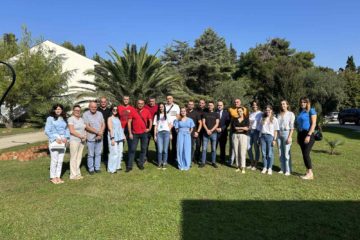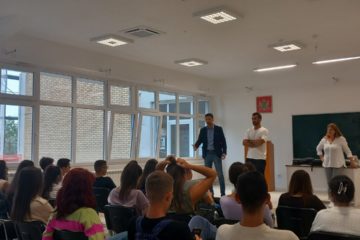Our YIHR team engaged with 15 young individuals to discuss topics related to the transitional justice, war crimes involving Montenegro, transgenerational traumas, and facing the past. This gathering took place within the framework of Module II of the School of transitional justice organized from December 8th to 10th of December in Bijela.
Numerous lecturers, speakers, and peace activists shared their rich knowledge and experiences with our participants. At the outset, Xhemal Peroviq briefed the participants on the political situation in Montenegro during the wartime events in the 1990s in our region. He extensively discussed the beginnings of the formation of the Liberal Alliance in Montenegro and presented war crimes from his perspective. Following him, we heard the harrowing life story of Alen Bajrović, the son of one of the Deportation victims. He shared his earliest memories with the participants, recounting the moment of parting with his father and his subsequent persistent struggle for justice.
Ervina Dabižinović from the NGO ANIMA began her lecture with the sentence, “It is important for you to know what was done in your name.” With a comprehensive presentation on life in Yugoslavia and its beauty, through the initial signs of impending major changes, to the bloodshed they had to witness, Ervina detailed how it all unfolded. She explained the political context and the change in the consciousness of all people, systematically implemented through propaganda from all sides, to prepare the ground for what is the greatest wound for everyone in our region. Towards the end of her presentation, she gave a brief introduction to the story of the attack on Dubrovnik and the Morinj camp.
Miloš Čekerevac, a former detainee in the Morinj camp, shared an emotional story and gruesome details after the attack on Konavle, his hiding with family and friends, and being taken to the camp. Participants had the opportunity to ask questions and learn details from the testimony of just one of the 292 individuals who were detainees from October 1991 to August 1992.
The visit to Dubrovnik, organized on the second day of the School, a few days after marking the most aggressive attack during the siege (December 6th), completed the participants’ picture of this crime. Through lectures and museum visits, we gained a detailed insight into the attack on this city and the shameful part of Montenegro’s history. To get a clearer picture of the events of those days and the efforts to rebuild the old town, we spoke with retired journalist Luko Brailo and Vjekoslav Vierda, who was the director of the Dubrovnik Restoration Institute. Thanks to the academic, professional, and personal wealth of spirit of our interlocutors, we completed the story of the tragedy of this Adriatic gem.
On the last day of the Transitional Justice School, we began with lectures by Professor Sanja Grbović from the Faculty of Law, who talked about the war crimes of Deportation and Štrpci. She shared her personal experiences as a native of Kotor about the events in the 90s. The first lecture was dedicated to the war crime of Štrpci, where we learned about all the details of this horrific crime. The second session focused on the war crime of Deportation, where we found out that war damages were paid to some families of the victims, and it was mentioned that Prime Minister Abazović and President Milatović are the first officials to attend the commemoration of a war crime and publicly apologize to the families of the victims.
At the very end of our gathering, with the excellent trainers Kristina Janković and Marko Vukčević, we summed up the impressions of the previous days and shared what left the biggest mark on us. This exercise helped participants find inspiration and generate ideas for stories that we will publish in a small publication in the coming period.
The organization of this module of the School of transitional justice was carried out within the project “Fostering public dialogue on transitional justice,” financed by the National Endowment for Democracy (NED).



0 Comments